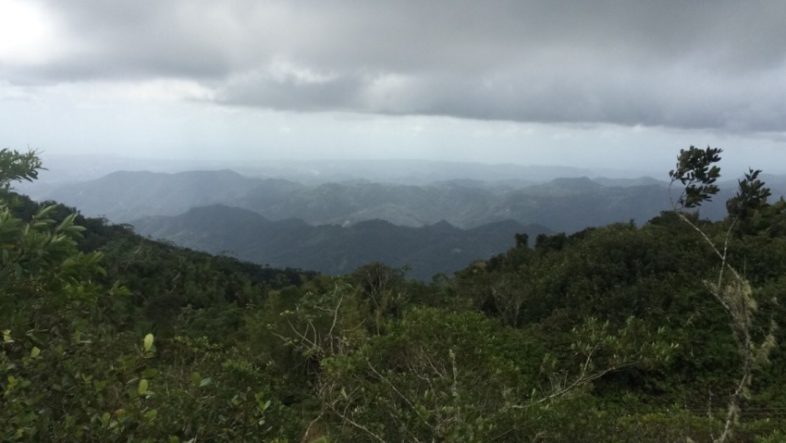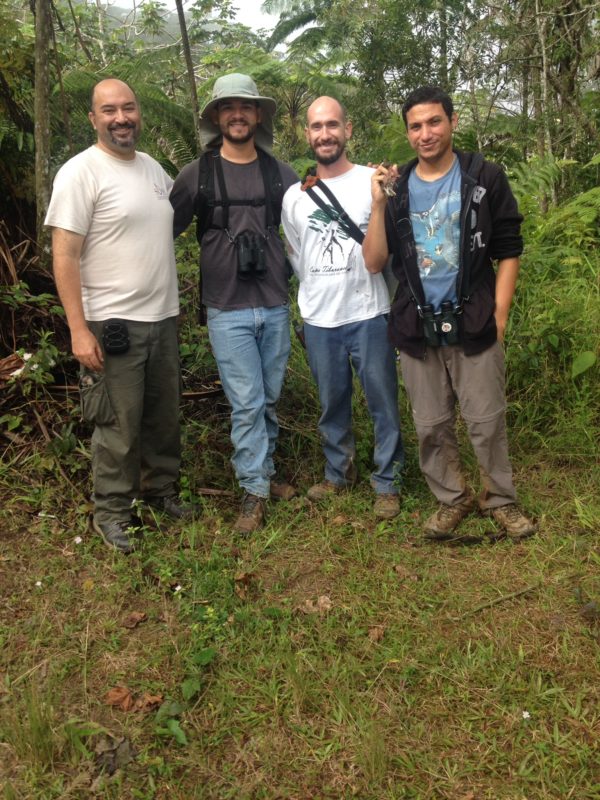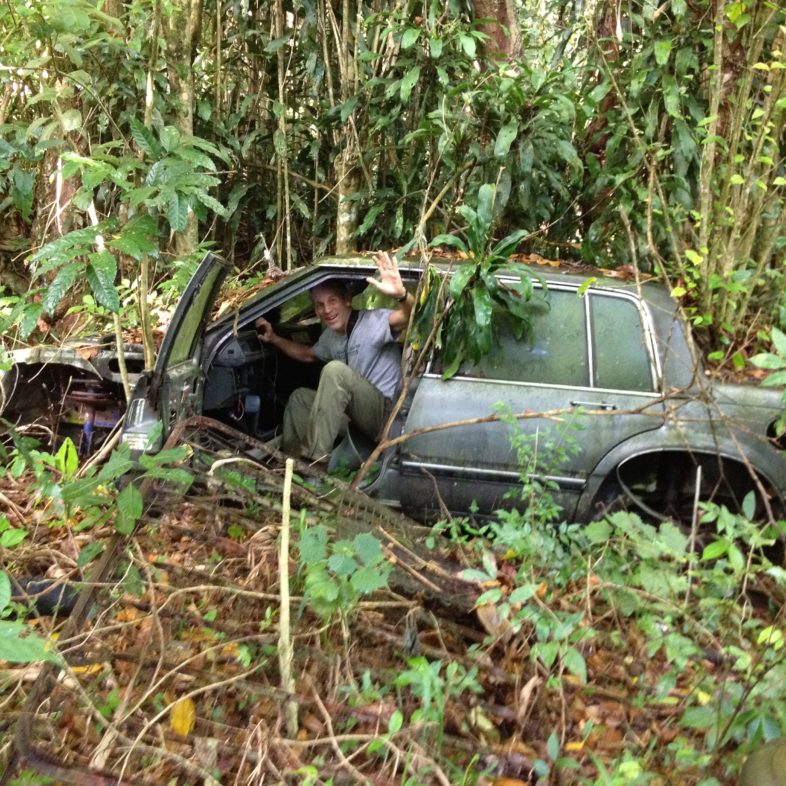
Elfin forest along the spine of Puerto Rico’s Cordillera Central, the winter habitat of most Bicknell’s Thrush on the island. Photo by C. Rimmer.
VCE’s work over the past quarter century has left little doubt that Hispaniola—particularly the Dominican Republic—supports the global lion’s share of overwintering Bicknell’s Thrush (BITH). A recent VCE-led peer-reviewed paper in the Journal of Caribbean Ornithology affirms that. Chris Rimmer, John Lloyd, and Puerto Rican colleague Jose Salguero-Faria collaborated on a two-year study that showed BITH to be a rare and local species islandwide.
Extensive field surveys in forested habitats across all elevations during the winters of 2015 and 2016 revealed that BITH were few and far between—the team detected a total of only 11 in both years. All but one bird inhabited mid-high elevation forest from 825–1225 m (2700–4020 ft) in the Cordillera Central, Puerto Rico’s central mountain range. One bird was found in the east, just outside El Yunque National Forest at 750 m (2460 ft) elevation. We banded one individual in January of 2016, confirming that it was indeed a Bicknell’s Thrush, and likely a male on its overwinter territory.

VCE’s Puerto Rican Dream Team with a banded Bicknell’s Thrush, 26 January 2016. L to R: Jose Salguero-Faria, Fabio Tarazona, Alcides Morales, Julio Salgado (holding banded BITH). Photo by C. Rimmer
VCE’s results are significant in confirming that Bicknell’s Thrush is a rare, local, and probably regular overwintering species in Puerto Rico. Even more importantly, however, our findings affirm the strategic need for continuing to focus conservation efforts on Hispaniola, especially in the Dominican Republic. While it is reassuring to know that this globally vulnerable species regularly overwinters in Puerto Rico, even if at low densities, Hispaniola’s montane broadleaf forests must continue to be our primary target for on-the-ground habitat conservation.

Team leader Rimmer shopping for a discount VCE field vehicle in Puerto Rico’s Cordillera Central. Photo by Jose Salguero-Faria.
